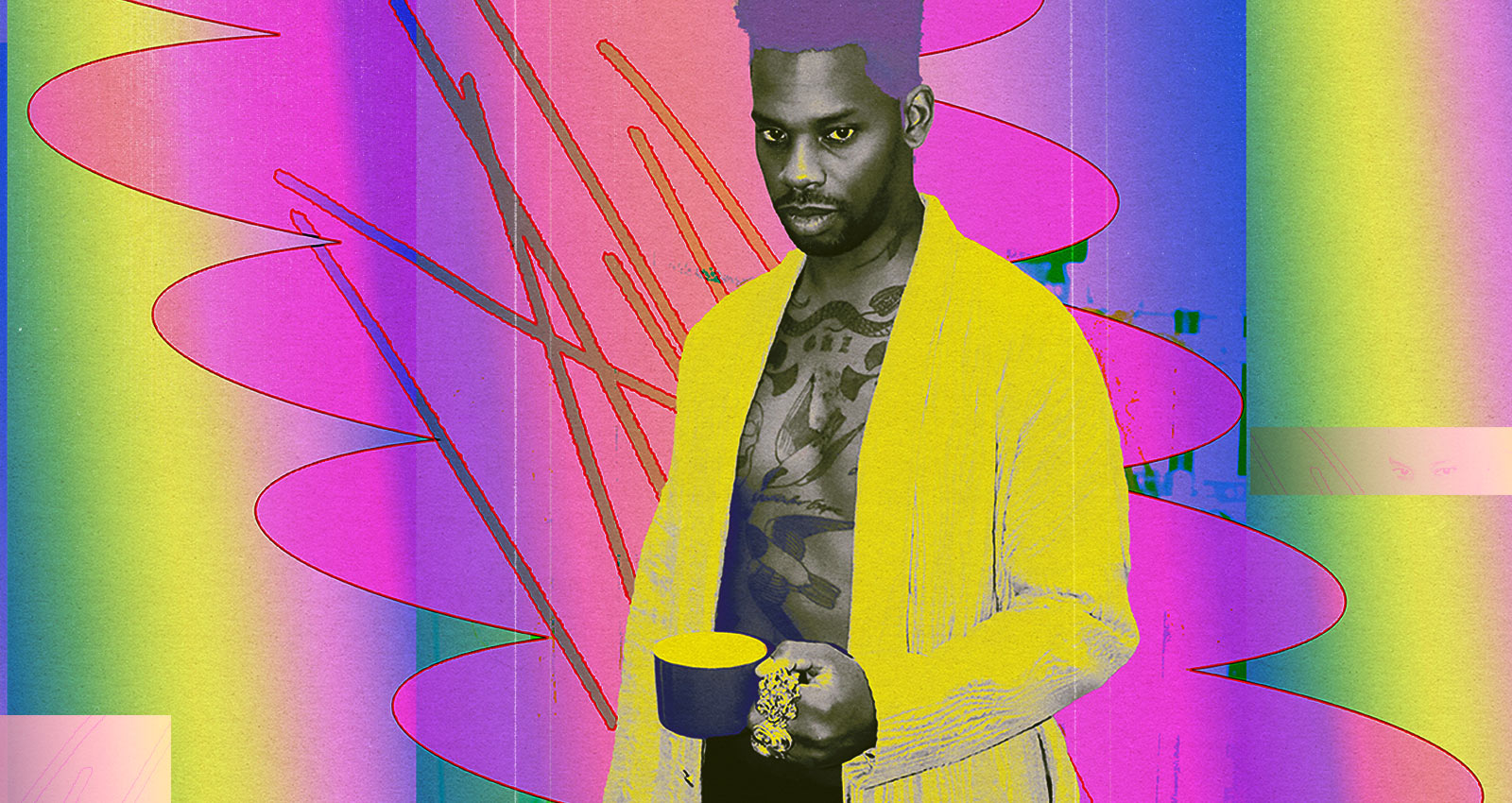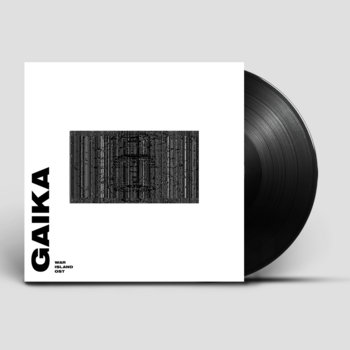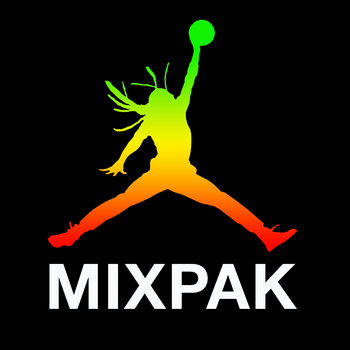
“You know how many times I’ve had audience members, black people, come to me and say ‘Your music would just go off in the hood, if you pushed it that way. Make sure the label pushes it that way!’” says Gaika Tavares, who performs simply as Gaika. “That’s happened to me more than 10 times.”
As he shows me around his studio in London’s East End, the first thing Tavares does is name all the other artists who have used it, a list of semi-established talents and up-and-comers from the U.K. music scene. “I’m very communally minded,” he says. “It kinda doesn’t make sense when everyone’s like ‘This guy’s just in his own lane, he’s by himself,’ all those things, which I think was a construction of Warp Records.”
Tavares released three albums on Warp after self-releasing Machine in 2015, a psychedelic hellquake of a debut with a picture of the artist in a face mask on its cover. As a rapper-producer making bassy, digital dancehall, Tavares was portrayed as a mysterious and singular innovator.



Vinyl LP

While he admits he may have had a part in creating this narrative, he says there can be consequences of such a characterization. “I’m talking about the demon black man narrative,” he says. “Part of my problem is it creates a barrier between yourself and the community from which you come, being like ‘You’re singular, you’re singular,’ rather than ‘This person is at the center of a community tryna create something with lots of other people.’”

Critics have called Tavares’s music rap, reggae, experimental, and techno, often prefaced with the word ‘deconstructed.’ “The whole thing’s loaded,” he says. “What’s deconstructed about it? Other than it’s a different take on what someone might identify as a particular genre?”
Interviewing Tavares is both incredibly easy and a formidable challenge. He’ll talk about anything, every other sentence a quotable soundbite. But though labels and media outlets have often celebrated his music, it’s clear he feels misrepresented. His new album War Island OST, released as a collaboration between NAAFI, SVBKVLT, and his own label TSE, was installed as an “audiovisual environment” at London’s Institute of Contemporary Arts last month. It’s now being released as an LP, an infernal and utterly unique work of club, trap, and drill. It’s as good as anything he’s ever done. On the single “Zatoichi” he raps: “I’m over-quoted, over-noted, underrated, undebated greatest of my generation.”

Vinyl LP

“There was a period where I’d be in newspapers,” he explains. ‘What do I think about this? What do I think about that?’ Then at the same time it ran in tension with me always feeling outside of things, or not getting my flowers, or not getting… not really fame, but respect, as an artist.” He pauses. “Look, there isn’t really anyone that does what I do, to the level I do it. Whether it’s music, fine art, or doing scores and stuff. But tryna get somebody to pay attention to a record that I’d put out, they’d be like ‘Nah, we’d rather talk about Kanye West,’ or ‘We’d rather talk about Aphex… But can you tell us what your political position is?’”
He’s never been one to brag, but on War Island he’s dispensed with those inhibitions. He also says he’s done talking about politics—which doesn’t mean he’s done making statements in his music. In another of War Island’s most memorable lyrics, Tavares raps about “the Epsteins of the rap scene,” referencing an often overlooked culture of sexual misconduct in U.K. rap. “There’s too many people who have got too many bodies,” he says. “There’s a lot of crud in rap music that nobody wants to talk about, a lot of young women being coerced into shit.”

“Zatoichi” is about Tavares’s navigation through the UK rap scene and—once again—“feeling a little bit outside of things,” he says. “Because you know what? Man’s not a rapist. I won’t cosign that. It’s not ok. If you’ve got crud around you, you can’t come near me. And so then it’s like ‘Oh, that guy’s not with us… stop scaring all the hoes!’” Tavares says he sometimes looks at his studio’s CCTV and sees young rappers surrounded by girls. “I just ring them up and say ‘Get out of my studio. You’re here to do music.’ This isn’t gonna be the spot for any of that fuckery. It’s not like you come and hang. All that’s gross, man. There’s so much of it in London that it actually gets in the way of good records being made, and more importantly, it damages people and creates a normal that shouldn’t exist.”
But he’s careful where he places the blame. “Who’s cosigning the fuckery? The very people who quietly make money whilst these guys come with all their addictions, all their issues, get paid, and now you can’t challenge anything,” he says. “We talk about the individual, we don’t talk about the system, which is grooming the next one to beat up his girlfriend, to be out here abusing people, to be giving women hot doses. It’s the same structure: quick money, separation, no oversight, no pastoral care, and more importantly, for the women, no one saying ‘Hey, you can’t do this.’”

Vinyl LP

His relationship with rap has always been complicated. In the summer of 2020, when Black Lives Matter protests spread across London and the world, demonstrators clashed violently with members of British alt-right groups like the National Front in Trafalgar Square. “I saw two artists there, that day, when everyone was fighting the NF and matey got picked up,” Tavares says. “Drillminister and me. Everyone else, they were not here for it. They were sitting in their trailers. I’m not saying that everyone has to be that way but…”
Go back to some of Tavares’s earliest releases — like “Keith Richards,” from 2016’s Security—and you’ll find he was using Chicago drill as inspiration long before the sound grew to dominate London. “Before anyone knew anything about me, before I started talking in big words and doing myself in”—he permits himself a smile—“a lot of the people that would follow my music would be following Famous Dex or whatever.”


Go back even further and you’ll find Tavares was once in a rap group called Murkage. In 2012, on a song called “Torches,” he rapped “Road yutes on a Ghengis tip press pause/ Go loot a cause/ Cos when you get that boot through the door/ Trust me, you have fi know who fi war.” It was a plea to London’s warring gangs, asking them to turn their anger outwards, onto the establishment, and work together to achieve positive change.
A decade later violence in London is even worse. Gaika not only reiterates the sentiment he expressed on “Torches,” but cites proof of its effectiveness. “I’ve seen it with my own eyes,” he says. “That day in Trafalgar Square all the NFs got chased out of London by drillers. These guys are in rival gangs, and they were literally sharing beers, going ‘We need to keep this up.’ Why are you killing your brother? Why are you killing the person who lives next to you? If you wanna turn something over, focus that aggression.”
Tavares’s next project is the score for The Kitchen, a film directed by his brother Kibwe Tavares and co-written by Daniel Kaluuya, set in “a future where the gap between the rich and the poor has been stretched to its limits.”



Vinyl LP

He predicts the 2020s will see the return of underground culture. “Right now we’re at peak nonsense,” he says. “Like, people who should know better sampling bad ‘90s records for virality. I just think people will see through it. That’s why I think we see things like drill, jazz coming back, bands coming back, rap bars coming back.”
Seeing the future is a gift he’s been burdened with. “I never set out to be like trap Billy Bragg,” he says. “I was just pretty angry about some things and said them in records and… It all came true. Look at the cover of Machine. It all came true.”







